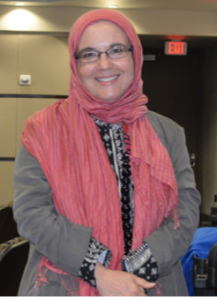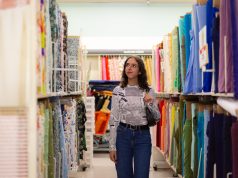Community leaders from different religions emphasized tolerance and inclusivity in spite of their differences during a talk at Florida International University.
The March 21 event, Bridging Faith & Culture, held at the Herbert Wertheim College of Medicine, focused on connecting the cultures and religions that shape the South Florida community and the misconceptions members from different cultural backgrounds have had to shatter.
A moment of silence was held in recognition of the people murdered in the New Zealand mosque shooting on March 15.
Medical student Moneba Annes talked to the audience about wearing religious symbols with pride and urged people to not be scared of any backlash.
“On the bright note, I did get a bouquet of flowers the other night because someone wanted to apologize for the New Zealand shooting and she could clearly tell that I was a Muslim because of my hijab,” said Annes.
Annes, who was born in Marianna,a small city northwest of Tallahassee, said she is aware there are many misconceptions of her religion.
“I’ve known a person for many years who has been very hateful because of what I wear, but then I received a Facebook message from that same person apologizing because he said that I had shown I was a good person,” she said. “There are bright moments and difficulties but we should not be scared of them.”
Individuals from different religions were in attendance, including Muslims, Catholics, Protestants and Jews.
Rabbi Moshe Tom Heyn, a hospice chaplain at Vitas Healthcare, spoke of the many misconceptions surrounding Jews.
“They believe we’re all affluent, very loud and greedy,” said Heyn. “Yet, there are similarities, like when I pray I’m still trying to find the common good in humanity and I believe that’s all a person wants out of life.”
The event united individuals with different beliefs, and it also brought a spotlight into the different religions in the South Florida community.
Rev. Linda Freeman, who was also a speaker at the eventfor the topic on faith, said politics can divide people, especially about matters of faith.
“We’re talking about faith and culture and that’s why I’m here today,” she said. “…People are not coming together and talking about what’s really important.”
Muslim Esther Chevvi said she believes individuals should be more educated in the religions of the world.
“I was born in Cuba and I grew up Catholic. I see differences, but also similarities in my religion,” Chevvi said. “ My Cuban family asked questions, but they accepted me converting because they’re kind people who love me.”
































